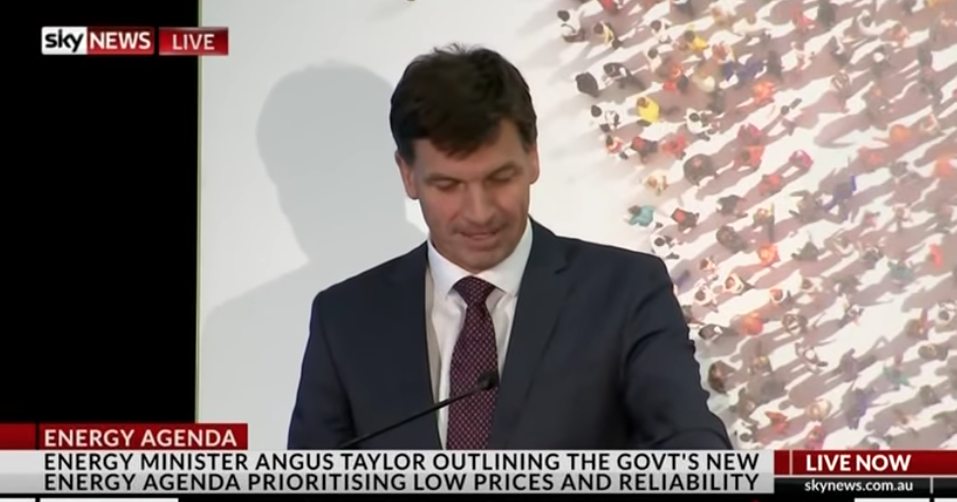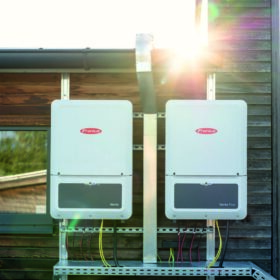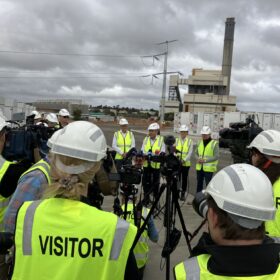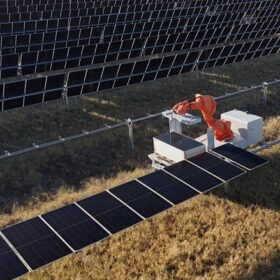Energy policy vacuum beyond 2020 is now looking inevitable, with the baseload-focused reliability guarantee the sole remaining piece of the shelved National Energy Guarantee that the Coalition is hanging onto.
Addressing the parliament on Tuesday, Energy Minister Angus Taylor confirmed the Morrison government will not be replacing the Renewable Energy Target (RET) “with anything“ when it expires in 2020.
“The truth of the matter is the renewable energy target is going to wind down from 2020, it reaches its peak in 2020, and we won’t be replacing that with anything,“ said Taylor answering an MP’s Adam Bandt’s question.
According to the Minister, no policy is needed beyond 2020 because the 26% emissions reduction target will be reached even without additional intervention.
The official announcement of a policy vacuum came alongside Taylor’s column for the Australian Financial Review, published on Tuesday, in which he declared: “emissions reductions are the least of our problems, with every prospect we will reach the 26% reduction below 2005 levels ahead of schedule and without interventions“.
This is in strong opposition to recent findings that suggest Australia remains on track to miss its Paris climate targets. According to the latest assessment from NDEVR Environmental, Australia is poised to emit nearly 1 billion tonnes of carbon dioxide over the Paris trajectory, with record-breaking emissions for the third year in a row.
In his column, Taylor reiterates the often heard claims by conservative MPs that renewables are behind grid instability and electricity price increases experienced in recent years.
“The renewable energy targets in Victoria, Queensland and the ACT are dramatically worsening the situation, with unprecedented additions of intermittent wind and solar putting pressure on reliable baseload generators to exit,” Taylor writes, adding that given its 50% RET, South Australia now has among the highest prices in the world and poor reliability.
But, in the words of AEMO’s Statement of Opportunities, it is the reduced reliability of ageing fossil fuel generators that is behind a heightened risk of power failure. What is more, renewable are today emerging as a solution to grid balancing. As outlined in the latest report from accounting giant Deloitte, solar and wind have demonstrated the ability to strengthen grid resilience and reliability, as they have the ability to provide essential grid services, through things like ‘synthetic inertia’, while placing downward pressure on electricity prices.
However, for the Australian energy minister, renewables spell only trouble. “The situation is dire enough without interventions that will drive up prices and drive down reliability by prematurely driving out coal and gas,“ he writes.
Noting that the Coalition won’t accept Labor’s 45% Emissions Reduction Target and 50% RET, Taylor states: “Their plan to take the failed South Australian experiment national will take a wrecking ball to our economy.“
The true economic blow is, however, set to come from the lack of renewable energy target beyond 2020 and policy settings that can drive investment in new generation, putting a whole industry at risk.
This content is protected by copyright and may not be reused. If you want to cooperate with us and would like to reuse some of our content, please contact: editors@pv-magazine.com.









Angus Taylor might be described as the Minister to StopTheseThings. For the last decade he has had a phobia about wind turbines which has become a phobia about the renwable energy future in Australia.
StopTheseThings is group of, among other things, anthropgenic climate change deniers.
The green idea was that follil fuel can be replaced by renewables, I said for 15 years, renewables don’t work. So there is no replacement for fossil fuels and countries either have to export jobs or scrap renewables.
Well then you’ve been wrong Val for 15 years. And getting more wrong by the minute.